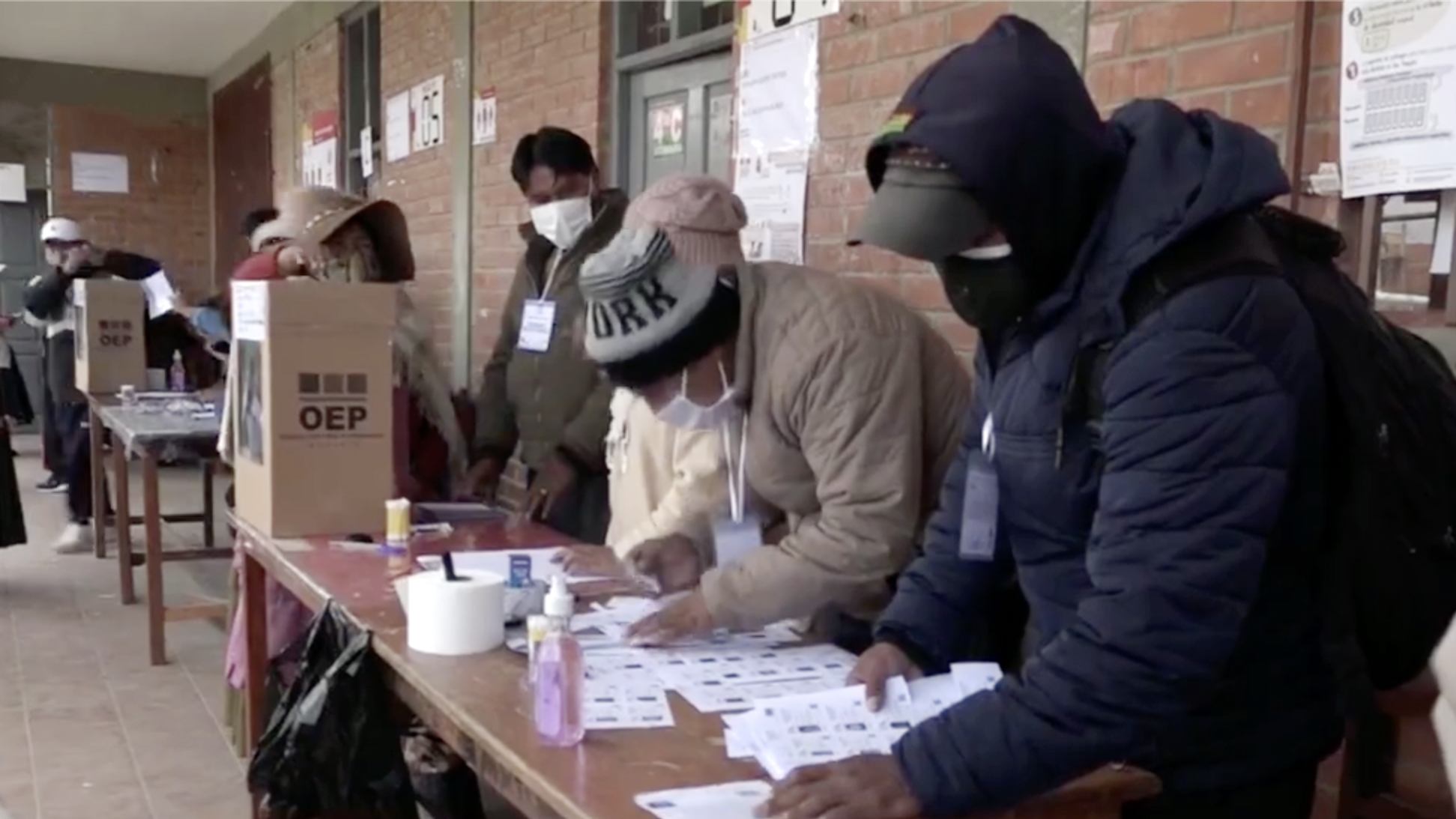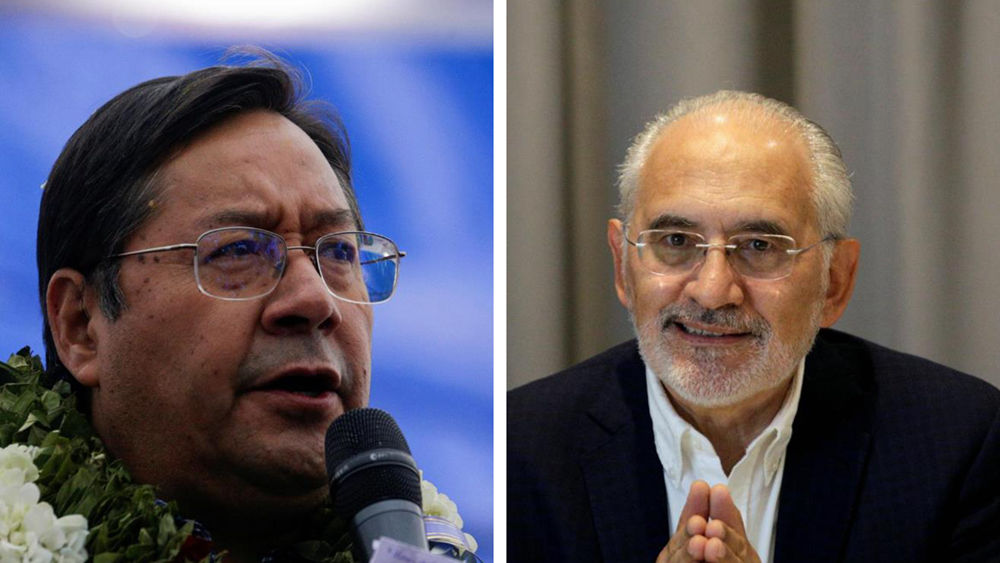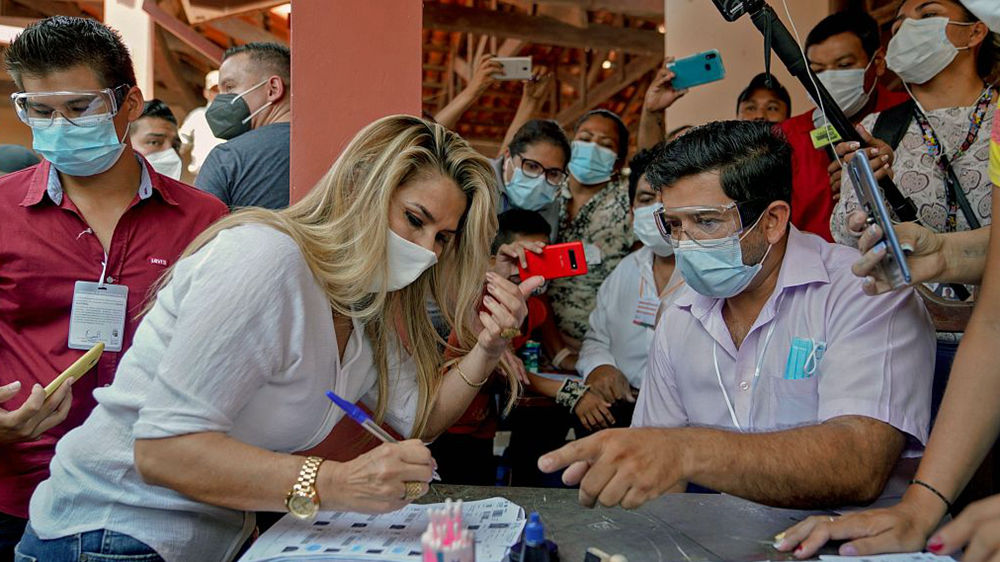01:21

Bolivia's interim President Jeanine Anez called for "patience" and urged citizens to avoid violence as they wait for the results from Sunday's general election.
The election, postponed twice due to coronavirus pandemic, was supposed to restore stability. After the country avoided election last year, the Andean nation plunged into a political crisis, ending the near 14-year administration of left-wing Evo Morales.
Results are expected to be slower than usual as the Electoral Tribunal suspended the customary rapid count, arguing that it couldn't guarantee the accuracy.
"Patience, we must all be patient waiting for the results without generating any type of violence," said Anez, adding "I assure you we will have credible results."
Despite a tense and polarized campaign, the election was held peacefully. "We've had a calm day throughout the whole country up until now," Deputy Security Minister Wilson Santamaria said.
Polling stations were open from 8:00 am to 5:00 pm (1200-2100 GMT) but some had to stay open longer as queues of people were still waiting to vote.
Observer missions from the European Union, OAS and the Carter Center are present, while United Nations General Secretary Antonio Guterres has called for the result to be respected.

Movement for Socialism candidate Luis Arce (L) and Carlos Mesa, centrist candidate of the Citizens' Community alliance. /CFP
Movement for Socialism candidate Luis Arce (L) and Carlos Mesa, centrist candidate of the Citizens' Community alliance. /CFP
Who are the candidates?
Movement for Socialism (MAS) candidate Luis Arce, who has consistently led opinion polls since he was nominated in January, criticized the suspension of the rapid count as he voted in La Paz, saying it "could generate doubts."
Before running for president, Arce, 57, served as finance minister under former President Evo Morales.
"It's not ideal but we understand that (the electoral body) has chosen the path to guaranteeing absolute security of the vote and above all the official count," said centrist Carlos Mesa, who has been running second in polls.
Mesa, 67, served as president between 2003 and 2005, was a journalist and set up a television news production company before his career in politics.
If neither of them succeeds in obtaining more than 50 percent of the votes or 40 percent with a 10-point lead over the nearest challenger, a run-off will be held next month.

Bolivia's interim President Jeanine Anez casts her vote in La Paz, October 18, 2020. /CFP
Bolivia's interim President Jeanine Anez casts her vote in La Paz, October 18, 2020. /CFP
End of a cycle
Sunday vote will bring to an end to the year-long interim presidency of conservative Anez, who withdrew from the race a month ago as criticism rose of her handling of the coronavirus pandemic that has left more than 8,400 people dead and infected 130,000.
As one of the poorest countries in the region despite its rich natural resources, Bolivia is also experiencing its worst economic crisis in 40 years, with GDP expected to contract by 6.2 percent in 2020.
Voting, which is mandatory up to the age of 60, was slow in part due to social distancing rules imposed over the coronavirus pandemic.
"I hope the next president will be a candidate who helps the countryside, the poor people," said Silverio Chirinos, a 69-year-old farmer in Huarina on the shores of Lake Titicaca.
Some, however, expected trouble. "Obviously there will be social upheaval... we just hope it won't last long," Clara Quitalba, 49, from the MAS bastion of EL Alto on the outskirts of La Paz.
As well as choosing a new president, the 7.3 million eligible voters will elect a vice president and 166 members of congress.
(With input from agencies)